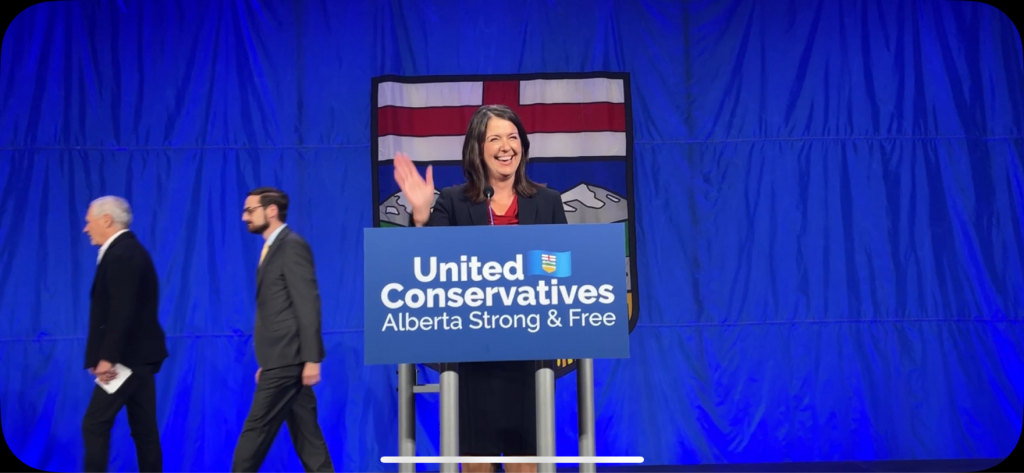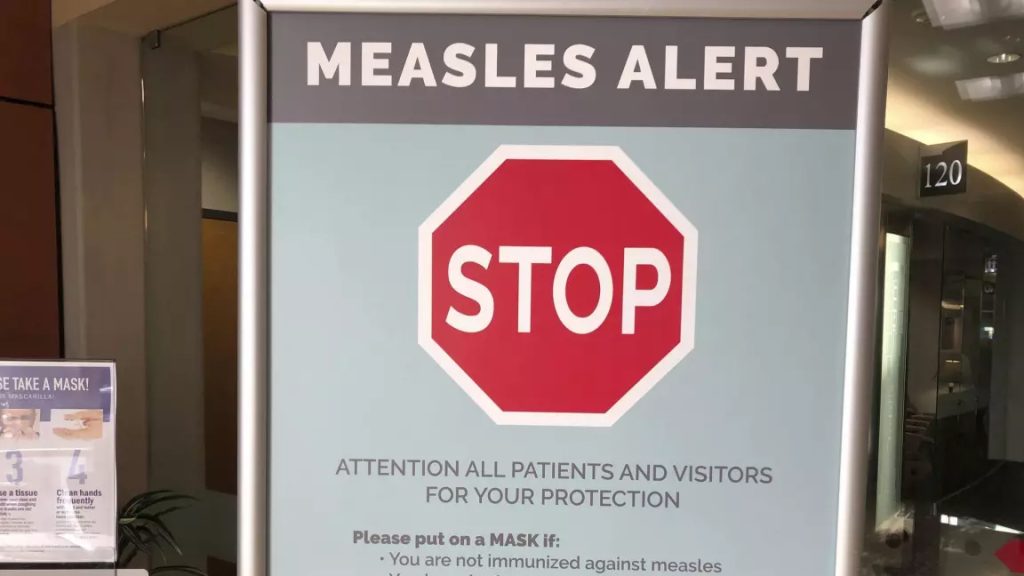Danielle Smith wins UCP leadership to become Alberta premier

Posted Oct 6, 2022 9:12 pm.
Last Updated Oct 7, 2022 6:25 am.
Danielle Smith has been voted the new United Conservative Party leader, becoming the 19th premier of Alberta Thursday.
Former Wildrose leader Smith, who ran on a platform of staunch conservativism, won the leadership race after six rounds of the preferential voting system, eventually gaining just over 53 per cent of the votes.
“My fellow Albertans, the last 117 years we have written a remarkable story together. It’s a story of pioneers and farmers, entrepreneurs and innovators, communities and families. A place where the best and brightest come from every corner of this world to join with us in building one of the greatest places on earth to live, to work, and to raise our families,” Smith said after the results were announced.
BREAKING:
Danielle Smith elected new leader of Alberta's UCP, and will become the province's next premier.#yeg #yyc #ableg #ucp
— Courtney Theriault (@cspotweet) October 7, 2022
“Tonight marks the beginning of a new chapter in the Alberta story. It is time for Alberta to take its place as a senior partner in building a strong and unified Canada,” she told the crowd, taking aim at the federal government in her victory speech.
“No longer will Alberta ask for permission from Ottawa to be prosperous and free. We will not have our voices silenced and censored. We will not be told what we must put in our bodies in order to work or to travel. We will not have our resources landlocked or our energy phased out of existence by virtue-signalling prime ministers.
“Albertans, not Ottawa, will chart our own destiny on our own terms and we will work with our fellow Canadians to build the most free and prosperous country on earth,” she added.
After the first ballot, Leelah Aheer was dropped as she had the fewest votes. In the second round, Rajan Sawhney was dropped after receiving just 2.7 per cent of the votes. In the third round, it was Todd Loewen who dropped out with 7.8 per cent of votes. In the fifth round, Rebecca Schulz dropped off the ballot with 8.4 per cent of the votes.

The voting breakdown for the Alberta UCP leadership race by candidate after the fifth ballot.
Smith made waves with her proposed Alberta Sovereignty Act, which she touted as a way for the province to assert its own authority and supersede that of the federal government, and drew major criticism throughout her campaign, including for misinformation around cancer she shared in a podcast this summer.
There were seven candidates in the race, including four former members of Jason Kenney’s cabinet, but Smith was the perceived favourite to win.
According to UCP bylaw, each ballot is worth one vote; however, voters select candidates in their order of preference, with the first choice being their most preferred candidate. Voters can rank as many candidates, or as few, as they want.
Once a candidate has received more than 50 per cent of the ballots, they are elected the winner. The process can continue until the seventh round.
Mail-in ballots arrived at the BMO Centre in Stampede Park Thursday morning, and in-person voting was held at five stations in various regions.
Chief Returning Officer for the UCP Leadership Election Committee Rick Orman says that 84,593 ballots were cast by UCP members. There were a total of 124,000 eligible members to vote for a new party leader.
RELATED STORIES:
-
Smith won’t seek early vote if she wins UCP leadership, becomes next Alberta premier
-
Alberta UCP leadership candidates unite to raise alarm on Alberta sovereignty bill
-
Angus Reid polls Albertans, left with “terrible” provincial leader options
Political observers and pollsters have said whoever ends up as leader needs to start addressing issues that are top of mind for Albertans.
The latest data from the Angus Reid Institute suggests Albertans are most worried about the cost of living and problems plaguing the healthcare system.
Kenney announced in May he would be stepping down as premier after narrowly winning a party leadership review with 51 per cent of the vote.
The outgoing premier said he’s often asked why he stuck around as premier after the leadership review instead of handing the reins to an interim leader.
“Believe me, I didn’t get into politics for the adulation. I got into public service to get things done,” he said.
“And if we had shifted to an interim government for five months, very little would have gotten done — the province would have gone through a degree of policy paralysis for the better part of six months just as we’re trying to recover from COVID.”
-With files from The Canadian Press








